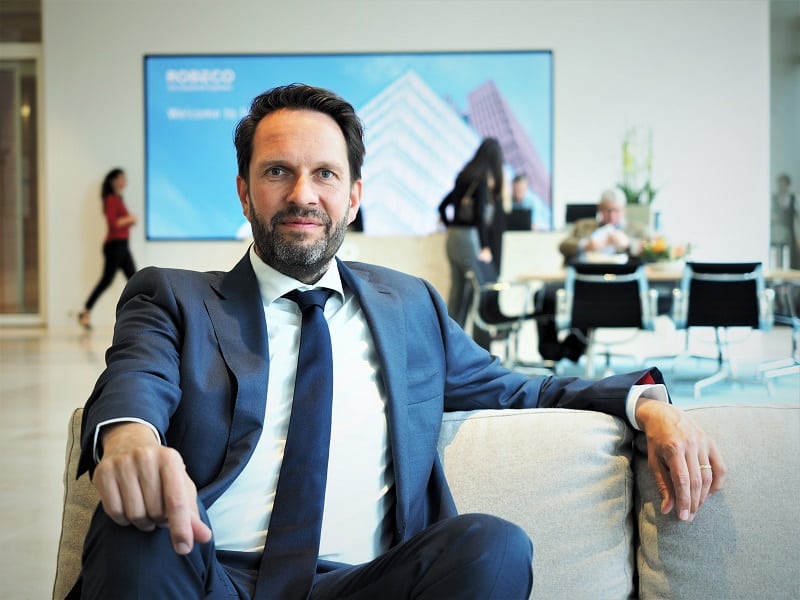The RobecoSAM Global SDG Credits strategy aims to outperform the Bloomberg Barclays Global Aggregate Corporate Index. An in-house analysis of 450 credits within the fund’s investible universe found 62% contributed positively to the SDGs, which cover social and ecological goals.
Launched on 15 May, the fund includes 90 issuers, which are primarily investment grade. It is managed by Jan Willem de Moor (pictured), who also runs the €922.7m ESG Euro Sustainable Credit, which launched in 2011.
Autos and food
Willem de Moor told Portfolio Adviser sector biases could come into play due to the SDG requirements.
“The intention is to have the same top down view as we have in the normal portfolios. There will be some sector biases, but these are not the sectors that at the moment offer the best outlooks.”
Car manufacturers and food and beverage companies typically fail to meet the fund’s SDG standards, Willem de Moor said.
“If you look at food and beverage companies, typically spreads on those are fairly low, so the potential for outperformance in the sector is not that high to start with.
“The financial outlook could change and also the SDG profile could change. If companies are actively modifying their products so they contain less sugar for instance, that would improve the SDG profile.”
The fund requires a car manufacturer to produce more than 5% in electric vehicles or hybrid vehicles before it invests, but Willem de Moor said it is currently hard to find issuers that fit that profile.
Besides Tesla, which the team has not looked at, Honda and Toyota pass RobecoSAM’s 5% threshold.
ESG versus SDGs
Funds employing environmental, social and governance criteria (ESG) may find it easier to take a sector-neutral approach than those incorporating the SDGs into their approach, according to Morningstar director of sustainability research for Europe Hortense Bioy.
“To avoid taking large active sector bets, many best-in-class indexes follow a sector-neutral approach by picking the best ESG securities in each sector and seeking to match the sector weights of the portfolio with the sector weights of the parent index. With the SDGs, it’s more difficult to take a sector-neutral approach because of the criteria that companies have to meet in terms of products and services,” Bioy said.
She added each asset manager uses different metrics for how it addresses the SDGs through its investments, meaning biases may vary.
Client demand
“In the last six months we’ve come across many investors or clients that have specifically asked us for funds targeting the Sustainable Development Goals. We clearly saw market opportunity,” Willem de Moor said.
RobecoSAM’s SDG analysis examines the companies’ products and services; the way the firm operates; and a controversy check to make sure the issuer has not been involved in events such as oil spills, fraud or bribery.
“So far there is not so much competition in funds really targeting ESG investments in the corporate bond market, so we hope to benefit from that.”
In May, Newton Investment Management added to the limited selection of ethical options in the Sterling Strategic Bond sector with the launch of the Sustainable Sterling Bond fund. Rival funds £134.2m EdenTree Amity Sterling Bond and £570.9m Royal London Ethical Bond have both consistently outperformed the sector.










